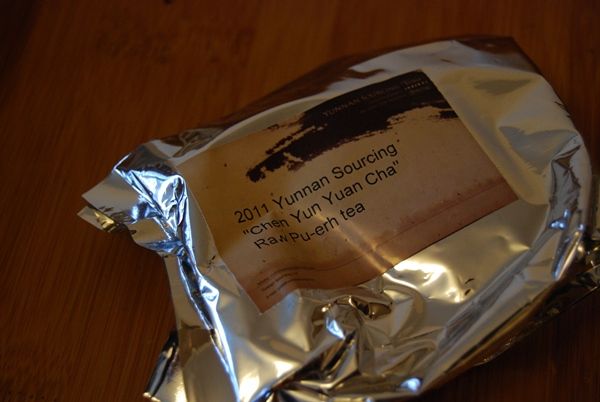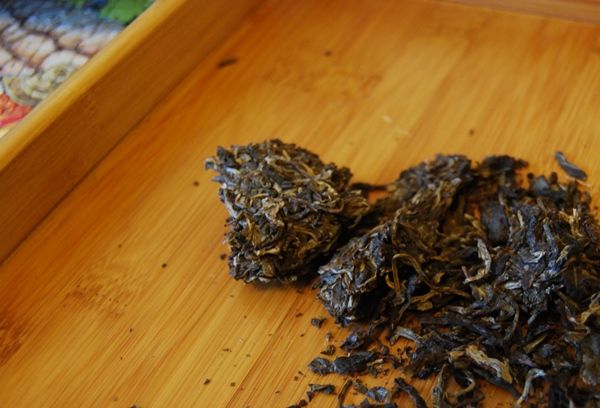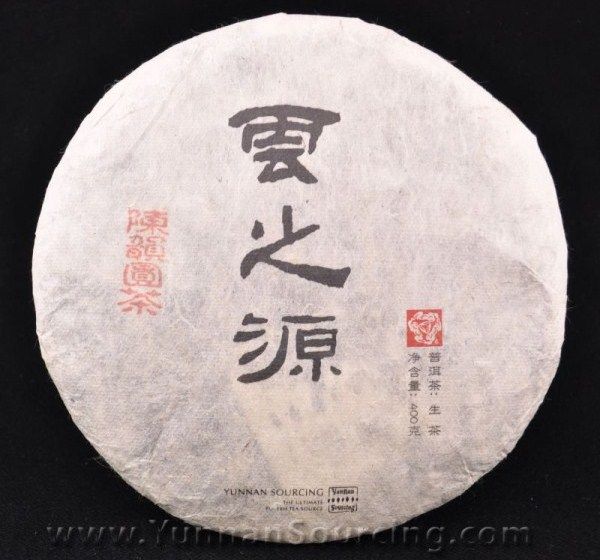It would rude to write about the 2011 Shangchun without mentioning its provincial sister blend, the 2011 "Chenyun Yuancha". The usual problem with translating "yun" presents itself: it's not quite a "rhyme", not quite a "harmony", not quite a "charming characteristic", but somewhere beyond all three, giving us "Aged-yun Round-Tea". I imagine that Scott (of Yunnan Sourcing) added the "yuancha" to pad it to the mandatory four characters that are expected for the names of most Chinese products, which makes it sit more comfortably in the vocabulary.
Mmm, shiny
The price of this cake makes the $27 Shangchun look expensive, because the "Chenyun" costs a mere $16. You cannot get 400g of very much for $16 these days. This particular blend comes from Lincang, where its two constituents are 2008 spring maocha from different areas in Lincang. The maocha were found in Dali, deep in northern Xiaguan territory, which Scott bravely recovered under the cover of darkness and brought back to civilisation.
Eensy weensy
As with its sister blend, this Chenyun blend is made from small leaves. While not the chubbiest Lincang cake in the world, it is clean and well-made. The mouth waters courtesy of a solid aftertaste, and it leaves a decent sweetness to dwell on the tongue.
"Chenyun Yuancha" shown by the red stamp-mark, on the left
It is a simple, sweet little thing, that is priced appropriately. As with Scott's other blends, it gives the cakes from major-label producers a run for their money. Perhaps it is not the most potent cake in the world, but it could be useful for casual brewing. If you're looking for inexpensive tea to bulk out a collection, you could do a lot worse. The Shangchun is the better tea, however.




No comments:
Post a Comment
(and thanks)